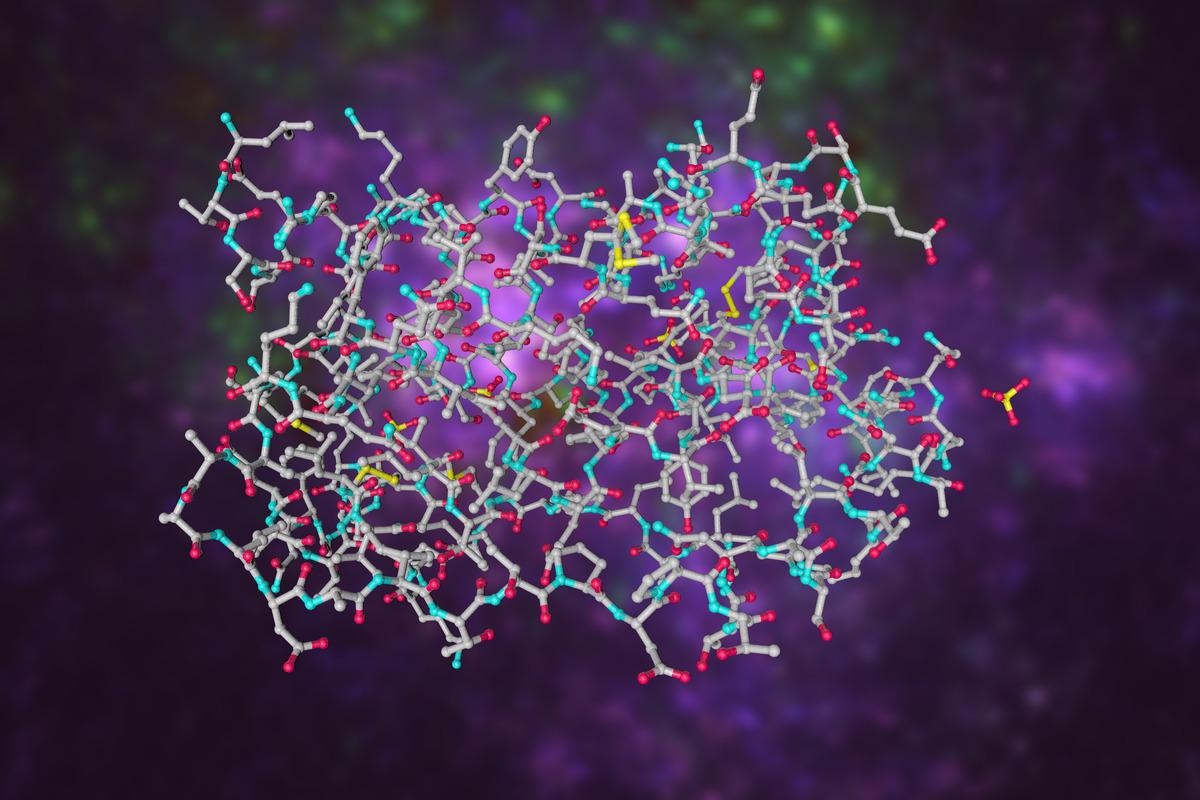A recent study posted to the Research Square* preprint server and under consideration at Scientific Reports investigated the impact of a recombinant fragment of cellular glycoprotein galectin-3-binding protein (Gal-3BP) on interleukin-6 (IL-6) expression in acute coronavirus disease 2019 (COVID-19).
 Study: Galectin-3 binding protein stimulated IL-6 expression is impeded by antibody intervention in SARS-CoV-2 susceptible cell lines. Image Credit:Maryna Olyak/Shutterstock
Study: Galectin-3 binding protein stimulated IL-6 expression is impeded by antibody intervention in SARS-CoV-2 susceptible cell lines. Image Credit:Maryna Olyak/Shutterstock

 This news article was a review of a preliminary scientific report that had not undergone peer-review at the time of publication. Since its initial publication, the scientific report has now been peer reviewed and accepted for publication in a Scientific Journal. Links to the preliminary and peer-reviewed reports are available in the Sources section at the bottom of this article. View Sources
This news article was a review of a preliminary scientific report that had not undergone peer-review at the time of publication. Since its initial publication, the scientific report has now been peer reviewed and accepted for publication in a Scientific Journal. Links to the preliminary and peer-reviewed reports are available in the Sources section at the bottom of this article. View Sources
Background
Various studies have reported an excessive production of IL-6 in patients suffering from severe acute respiratory syndrome coronavirus 2 (SARS-CoV-2) infection in the acute phase, resulting in a hyperinflammatory condition characteristic of disease severity. However, an effective therapeutic approach for treating or preventing this inflammatory response in COVID-19 is lacking.
About the study
In the present study, researchers assessed the effect of D2, a recombinant fragment of the lectin-binding region of Gal-3BP, on the secretion of IL-6 during severe COVID-19. The team also assessed the impact of the anti-Gal-3BP monoclonal antibody 1959 on SARS-CoV-2 infected cell lines post-treatment with D2.
The team obtained HCC827 and A549 epithelial cell lines derived from human lung adenocarcinoma and Caco-2 epithelial cell lines, which in turn are derived from human colorectal adenocarcinoma. These cell lines were treated with different amounts of D2, anti-Gal-3BP monoclonal antibody 1959, and D-lactose. Cytokines were quantified 24 and 48 hours after incubation, and ribonucleic acid (RNA) extraction was performed.
The three cell lines were subsequently detached and treated with anti-human Gal-3 cells. Total RNA was isolated and quantified. The team converted the RNA to complementary deoxyribonucleic acid (cDNA). The samples were tested by quantitative reverse transcription-polymerase chain reaction (qRT-PCR). Subsequently, an enzyme-linked immunosorbent assay (ELISA) was performed to quantify IL-6 levels.
Out of the 585 amino acids present in the mature Gal-3BP, the team cleaved the first 18 amino acids using IL-6-specific primers, resulting in four distinct putative regions in the cDNA sequence, including the D2 domain consisting of beta-trace protein (BTP).
The team also generated a humanized variant of the murine monoclonal antibody, named antibody 1959, that recognized Gal-3BP. This antibody was produced by determining murine complementary determinant regions (CDRs) grafted on a human antibody framework, followed by purification and dialyzation of the antibody.
Results
The study results showed that treatment of the cell lines with D2 led to a dose-dependent improvement in IL-6 levels 24 hours after treatment in comparison to that of untreated cells. PCR analysis also showed that D2 efficiently stimulated the expression of IL-6 cells. Furthermore, 48 hours after treatment of the cells with D2, a substantial increase in IL-6 was noted in all three cell lines compared to the untreated cells. However, in the presence of lactose, a reduction in IL-6 levels was observed in D2-treated cells. This inhibitory effect of lactose on the IL-6 levels was proportional to Gal-3 levels as expressed by the cells and was notably higher in the HCC827 cells, followed by the A549 and Caco-2 cells.
The team observed a remarkable reduction in IL-6 secretion when treated with antibody 1959 post D2 treatment. They also noted an overexpression of Gal-3BP in COVID-19 symptomatic patients. Greater disease severity was associated with increased IL-6 levels. This over-secretion of Gal-3BP could activate higher levels of its endogenous ligand Gal-3, which could, in turn, lead to the production of inflammatory cytokines.
Conclusion
The study findings showed that D2 successfully increased the secretion of IL-6 in cell lines susceptible to SARS-CoV-2 infection. Furthermore, this stimulatory effect of D2 was partially reversed by the treatment of anti-Gal-3BP monoclonal antibody 1959. Thus, the researchers believe that Gal-3 is an effective marker of severe COVID-19 and could serve as an effective target to reduce fatal inflammation and related organ damage in COVID-19 patients.

 This news article was a review of a preliminary scientific report that had not undergone peer-review at the time of publication. Since its initial publication, the scientific report has now been peer reviewed and accepted for publication in a Scientific Journal. Links to the preliminary and peer-reviewed reports are available in the Sources section at the bottom of this article. View Sources
This news article was a review of a preliminary scientific report that had not undergone peer-review at the time of publication. Since its initial publication, the scientific report has now been peer reviewed and accepted for publication in a Scientific Journal. Links to the preliminary and peer-reviewed reports are available in the Sources section at the bottom of this article. View Sources